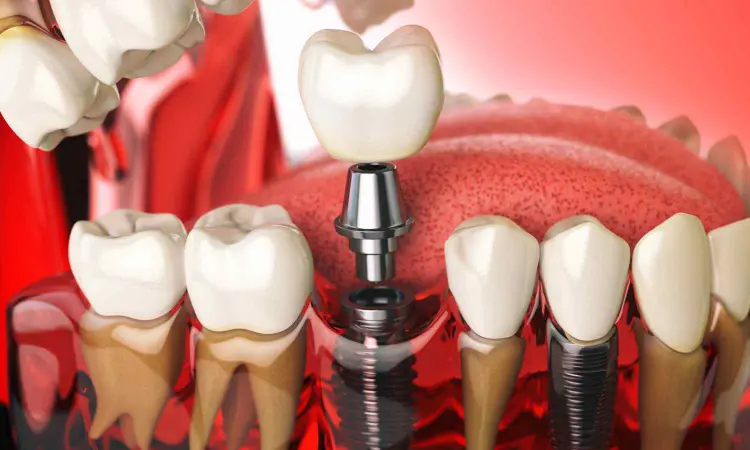- Home
- Medical news & Guidelines
- Anesthesiology
- Cardiology and CTVS
- Critical Care
- Dentistry
- Dermatology
- Diabetes and Endocrinology
- ENT
- Gastroenterology
- Medicine
- Nephrology
- Neurology
- Obstretics-Gynaecology
- Oncology
- Ophthalmology
- Orthopaedics
- Pediatrics-Neonatology
- Psychiatry
- Pulmonology
- Radiology
- Surgery
- Urology
- Laboratory Medicine
- Diet
- Nursing
- Paramedical
- Physiotherapy
- Health news
- Fact Check
- Bone Health Fact Check
- Brain Health Fact Check
- Cancer Related Fact Check
- Child Care Fact Check
- Dental and oral health fact check
- Diabetes and metabolic health fact check
- Diet and Nutrition Fact Check
- Eye and ENT Care Fact Check
- Fitness fact check
- Gut health fact check
- Heart health fact check
- Kidney health fact check
- Medical education fact check
- Men's health fact check
- Respiratory fact check
- Skin and hair care fact check
- Vaccine and Immunization fact check
- Women's health fact check
- AYUSH
- State News
- Andaman and Nicobar Islands
- Andhra Pradesh
- Arunachal Pradesh
- Assam
- Bihar
- Chandigarh
- Chattisgarh
- Dadra and Nagar Haveli
- Daman and Diu
- Delhi
- Goa
- Gujarat
- Haryana
- Himachal Pradesh
- Jammu & Kashmir
- Jharkhand
- Karnataka
- Kerala
- Ladakh
- Lakshadweep
- Madhya Pradesh
- Maharashtra
- Manipur
- Meghalaya
- Mizoram
- Nagaland
- Odisha
- Puducherry
- Punjab
- Rajasthan
- Sikkim
- Tamil Nadu
- Telangana
- Tripura
- Uttar Pradesh
- Uttrakhand
- West Bengal
- Medical Education
- Industry
Digital scanning and conventional impressions show comparable accuracy for most fixed prosthodontics, suggests study

Digital scanning and conventional impressions show comparable accuracy for most fixed prosthodontics, suggests a study published in the Journal of Prosthetic Dentistry
Several systematic reviews have compared the accuracy of conventional impression-making and digital recording techniques, with sometimes different results.
A systematic overview of these studies is lacking. This overview of systematic reviews examined the accuracy of digital scans and conventional impressions for tooth- or implant-supported fixed restorations in partially and completely edentulous adult patients.
Four databases (Medline via PubMed, Scopus, Web of Science, and Google Scholar) were searched for systematic reviews according to preset eligibility criteria. Two calibrated evaluators screened and assessed the overall confidence of the included reviews using the A Measurement Tool to Assess Systematic Reviews (AMSTAR) 2 tool. Several review characteristics were recorded, including accuracy in terms of trueness and/or precision.
The Jadad et al1 decision algorithm was used to select the best evidence, and a citation matrix was used to show overlaps in the studies. Results: From the 307 retrieved studies, 28 systematic reviews were included in this overview. Among these, 12 performed meta-analyses, and 18 comprised both in vitro and in vivo primary studies. Generally, digital scanning and conventional impression techniques for crowns and fixed partial dentures, for implant-supported fixed restorations, and for both tooth- and implant-supported restorations showed no statistically significant differences in terms of accuracy (trueness and precision) and marginal and internal adaptation (P>.05).
However, conventional impressions outperformed digital scans for complete-arch fixed dental prostheses in terms of accuracy. Regarding methodological quality, most systematic reviews (67.9%) received critically low overall confidence based on AMSTAR 2. No significant differences were reported in terms of marginal and internal fit between prosthetic restorations constructed after digital scanning and conventional impression-making. The opportunity exists to enhance the methodological quality of systematic reviews about the accuracy of dental recordings.
Reference:
Digital scans versus conventional impressions in fixed prosthodontics: An overview of systematic reviews. Kaitatzidou, Aikaterini et al. Journal of Prosthetic Dentistry, Volume 0, Issue 0
Dr. Shravani Dali has completed her BDS from Pravara institute of medical sciences, loni. Following which she extensively worked in the healthcare sector for 2+ years. She has been actively involved in writing blogs in field of health and wellness. Currently she is pursuing her Masters of public health-health administration from Tata institute of social sciences. She can be contacted at editorial@medicaldialogues.in.
Dr Kamal Kant Kohli-MBBS, DTCD- a chest specialist with more than 30 years of practice and a flair for writing clinical articles, Dr Kamal Kant Kohli joined Medical Dialogues as a Chief Editor of Medical News. Besides writing articles, as an editor, he proofreads and verifies all the medical content published on Medical Dialogues including those coming from journals, studies,medical conferences,guidelines etc. Email: drkohli@medicaldialogues.in. Contact no. 011-43720751


